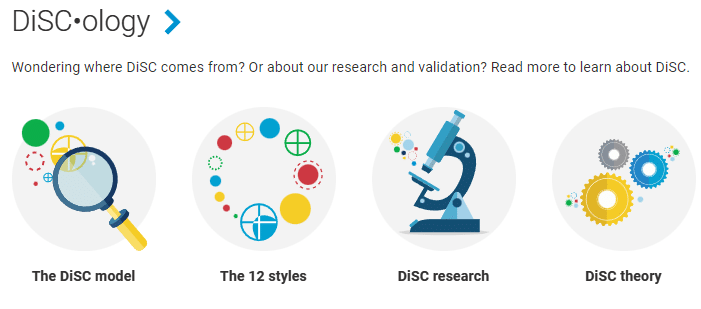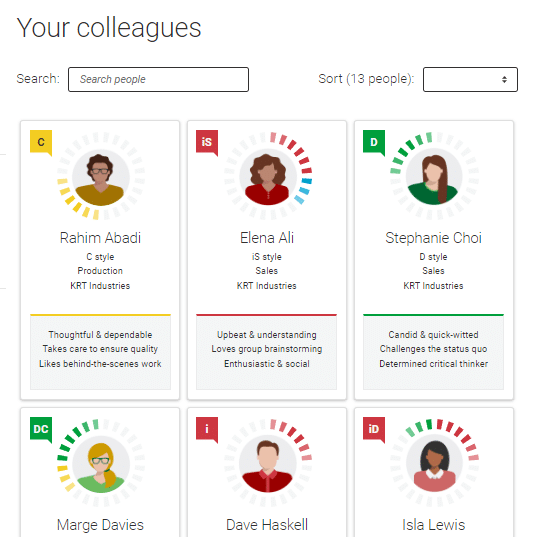According to the NTUC LearningHub’s State of Workplace Learning report, employees regard workplace learning as “instrumental,” but most aren’t getting or taking the opportunity to learn. “The main reasons cited were lack of time (52%) and disruption to their daily work (45%),” states the report. Everything DiSC® facilitators are likely to run into this issue, too.
Facilitators and trainers are learning to approach their learners as demanding consumers who want more digital or blended learning experiences. They are challenging traditional expectations about training and the learning experience. And they need bite-size learning opportunities that have a return on their investment of time.
In response to this need, we recommend using the Everything DiSC® on Catalyst™ platform. The platform is engaging for the learner, the training sessions are modular to fit any time frame, and it has practical applications to encourage the learner’s return. However, this platform alone isn’t enough to ensure that learners will improve the soft skills they require.
Creating learner buy-in
Anticipate their questions
Learners want to understand why they are being invited to any training. Do they lack an important skill? Will they be judged or evaluated during the training? Is the training punitive or developmental? What about people’s privacy? What is their manager’s involvement in this training? Does it really matter if they attend? What’s the quality of the training?
Explain the importance of soft skills
Learners will want to know that their training will be personally and professionally rewarding. For some, this will mean explaining why learning about personalities and mindsets, communication and conflict styles, and priorities and differences matter. We offer a few suggestions:
- Soft skills help employees:
- increase their self-awareness and self-image by better identifying and understanding their personal strengths and weaknesses
- make more informed choices about their behaviors and reactions, resulting in better relations with colleagues, improved conflict management, and enhanced communication
- improve their agility and flexibility, allowing them to adapt to changes and overcome challenges with great ease
- Soft skills help managers:
- motivate their teams and build more cohesive teams
- better display skills looked for in leadership roles
Design and presentation of content
Here’s where the Catalyst platform makes the facilitator’s job easier.
Bite-size modules
Learners are more likely able to find an hour in their week to learn online rather than leave their desk for a half-day session. Some will still prefer to meet in person for an hour, and facilitators have the option of providing hybrid training.
The Catalyst Facilitation Kit features modules of various lengths. They can be offered in any order, although we recommend these two first:
- Your DiSC® Style: 60 minutes classroom/65 minutes virtual
- Your Colleagues: 30 minutes classroom/20 minutes virtual
The longest module is 95 minutes classroom/100 minutes virtual.
Asynchronous assignments
Some facilitators include pre-work or other assignments that can be done outside the group training. Others provide learners with A Guide to Me (PDF or DOCX formats) and ask them to begin filling it out. We also offer journal prompts for DiSC learners.
Facilitators might ask people to respond to the following question in a Slack or Teams channel: What’s one thing you wish your colleagues better understood about your DiSC style and how you prefer to work? You can ask similar questions about how learners like to be rewarded, get feedback, run meetings, review reports, etc.
For learners who want to learn more about the nuts and bolts of DiSC, they have the opportunity to explore modules on Catalyst by themselves.

There are also audio files and videos that can be assigned or explored outside a training session.
We offer suggestions on how to refresh DiSC learning, or how to move from a “one and done” module to “return and learn” instead: Keeping DiSC in learners’ minds.
Soft skills and behavioral change are difficult to learn and require reflection and practice. They are also difficult to measure. Nevertheless, facilitators can ask for training evaluations and follow up with learners to ask:
- if employees are returning to the Catalyst platform
- if they have made any personal or professional changes since their training(s)
- how valuable and applicable they have found learning about the different styles and priorities reflected in the DiSC model
“We have used Everything DiSC assessments for years, but Catalyst has helped drive the conversation and bridge the gap by giving people a common language and space to get started with building relationships, even if it’s over the phone, through email, or on video calls. Our employees often reference Catalyst before a call to gain insight into how to make the most of their meeting.”



